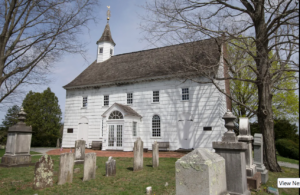Meet Your Revolutionary Neighbors
Joshua Jack Huddy
1735-1782
I was a zealous Patriot militiaman who sparked a famous diplomatic bonfire.
I was born into a Quaker family in Salem County on November 8, 1735. We Quakers were pacifists but I was expelled for my “disorderly” conduct. In 1764 I married widow Mary Borden and we had two daughters before she died and I moved to Monmouth County. I married again, this time to widow Catherine Hart, who owned a tavern in Colt’s Neck.
Folks say I was zealous, maybe overzealous, in my support of the Revolution. I served in the State Troops and other militia companies, including at the Battle of Germantown outside Philadelphia in 1777. After that I led a group of mounted militiamen at the huge Battle of Monmouth in 1778.
In 1780, I joined a tough group of vigilantes called the Retaliators, and we brought eye-for-an-eye justice to Loyalists and suspected Loyalists. In my personal life, I became estranged from my wife but continued to reside in the tavern in the company of Lucretia Emmons who people thought might be my servant or my mistress.
I was wounded and captured in a raid on my tavern, but I managed to escape. In 1782, I commanded a fort at Tom’s River called the Block House when it was attacked and I was again made prisoner. This time my captors weren’t going to let me get away, and they hanged me for my actions against Loyalists.
George Washington himself protested, demanding that my executioner be turned over or he would hang a British officer in retaliation. This created a famous political crisis called the “Huddy Affair,” but the end of hostilities in the war brought things to a close.
Learn More




